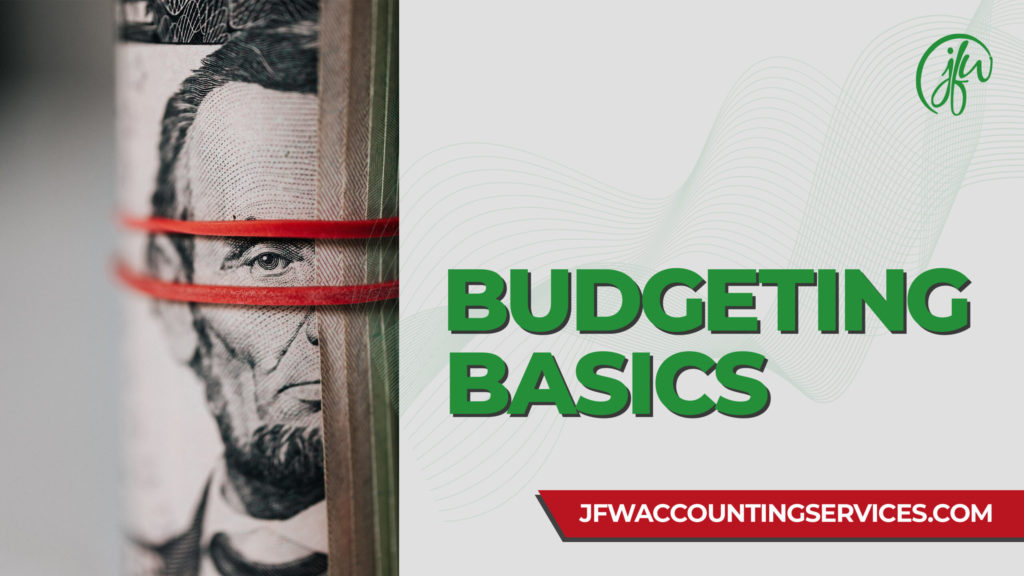Non-profit organizations often depend on the generosity of their partners for financial support to help keep their operations running smoothly. Sustainability is key to its success as all programs need to be funded. But not everyone understands the importance of budgeting for non-profits.
Poor cash flow management is one of the biggest reasons why organizations fail, especially non-profits. They need to establish their credibility to benefactors, and sound financial management is one of the key indicators for it. How an organization manages its budget keeps it alive.
In this article, we will discuss why budgeting is important and then offer some tips for a fail-proof budgeting process.
The Benefits of Budget For Nonprofit Organization
Sound budgeting preparation, procedures, and analysis will improve the efficiency of your nonprofit organization. Budgeting enhances your ability to plan future activities and events by establishing objectives that are achievable.
Some of the benefits of budget plans are:
- Time is money. You’ll save both by knowing what’s working.
- Know where your organization stands financially.
- You’ll have a better understanding of your program’s performance.
- Identify the strengths and weaknesses in your programs.
- Develop the capability to make smart decisions about how to improve the quality of your work.
- You can measure the impact of your organization’s programs on your community.
- Make it easier to prioritize the organization’s goals.
- Communicate more effectively with employees and partners.
- Gain a better understanding of fundraising needs and costs.
- Build stronger relationships between staff members, encouraging teamwork and collaboration.
- Create a culture of cooperation.
- Increase productivity and efficiency.
- Create a better work environment.
How To Create A Realistic and Sustainable Nonprofit Budget
The first thing you should understand when budgeting for your organization is that there are two different types of budgets:
- Operational budgets
- Capital budgets
A nonprofit operating budget is an important document that covers the day-to-day expenses of your organization. It breaks down projected revenue and expenses for a year, shows where it comes from (funding sources) as well as what programs will be supported with those funds. If you’re spending more than usual because of higher costs like overhead fees, you can map out a more strategic position in managing your finances.
Capital budgets cover larger investments like office space or renovations. The capital budget projects the expenses and revenue associated with long-term projects that are typically larger in cost than normal operating expense campaigns. This tends to include your non-profit’s major campaign for new funds or materials needed on an ongoing basis.
It is imperative that you review your budget regularly, as it provides the information necessary for monitoring how well or poorly funded a project may be. Budgets are living documents; therefore they should never really go away once created. There will always be some event or another which has transpired in time between its creation and the present. Then this could impact what was forecasted earlier on when creating the said document.
Tips For Staying On Track With Your Budgeting Process

The annual budgeting process can be tedious and difficult, but it’s necessary for any business to function. The numbers don’t lie – you need money in order to get things done! There are many strategies that you can employ to improve your current system to make this annual endeavor less daunting than before!
1. Use templates to create your budget.
Using nonprofit budget template will save you time and it also makes sure that the important line items in your finances are not missed out on. It encourages consistency in your reports and helps a better understanding of your finances when you roll out plans to your team.
They’re great because they take all the work off your plate so that when you dive into the numbers with your team, there is no confusion over what goes in! Your accountant can help out with this as well if needed–I’m sure he/she would know which one is best suited for your needs.
2. Create monthly budgets.
A proper budget will help you manage your activities better and see what is urgently needed. A monthly format for tracking expenses can be more helpful rather than relying on an annual one. You can easily make adjustments within the accounting year rather than at the end and add to the stress at a time when everything else is being done.
3. Consider your fixed expenses.
Fixed costs are the most predictable and important expenses your organization needs to plan for. These include things like office rent, utility bills, payroll, insurance coverage – these may appear on a regular basis or just be an expense in itself; either way, it should be accounted for so they can’t slip through the cracks when building out budgets with fixed elements included first!
4. Consider your variable expenses.
Variable expenses are more difficult to plan for in your nonprofit’s budget. Variable costs change from year to year, and it can be hard to predict what will happen next year when you don’t have the numbers to compare it with!
Variable expenses include:
- Program expenses
- Administrative expenses
- Fund-raising costs
5. Budget for inflation.
While an annual budget can be made, it’s best to create one that is going to last. This way you’ll know exactly how much money comes in and what expenses need funding each month so there are no surprises when your time limit arrives! To do this, properly take into account inflation (around 3% per annum).
Conclusion
Budget for nonprofit is a key component of your organization. You need to ensure that you have enough money for the projects and initiatives that are most important to you so they can be carried out, but also know how much it will cost before committing too far down the road. Accountants are trained on what to look out for, what to include, and prevent overspending, and still achieve the organization’s goals.
If this sounds like something you want help with, schedule a call with us today! We’ll be happy to review how we could improve your financial management processes. Let’s talk soon. We’ll be happy to!

Jo-Anne Williams Barnes, is a Certified Public Accountant (CPA) and Chartered Global Management Accountant (CGMA) holding a Master’s of Science in Accounting (MSA) and a Master’s in Business Administration (MBA). Additionally, she holds a Bachelor of Science (BS) in Accounting from the University of Baltimore and is a seasoned accounting professional with several years of experience in the field of managing financial records for non-profits, small, medium, and large businesses. Jo-Anne is a certified Sage Intacct Accounting and Implementation Specialist, a certified QuickBooks ProAdvisor, an AICPA Not-for-Profit Certificate II holder, and Standard for Excellence Licensed Consultant. Additionally, Jo-Anne is a member of American Institute of Certified Public Accountant (AICPA), Maryland Association of Certified Public Accountants (MACPA), and Greater Washington Society of Certified Public Accountants (GWSCPA) where she continues to keep abreast on the latest industry trends and changes.

